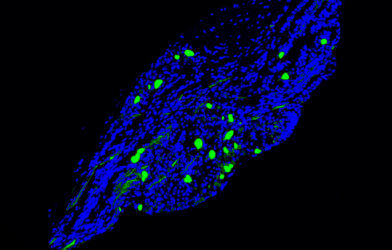Remember that old saying, “Don’t eat too late…it will cause nightmares?” A recent study shows there could be some truth to that. Researchers in Japan suggest that gut bacteria may have a role in the creation of serotonin and dopamine, two important chemical messengers in the brain.
The discovery could prove helpful in finding more natural treatments for chronic sleep-related health issues.
“We found that microbe depletion eliminated serotonin in the gut, and we know that serotonin levels in the brain can affect sleep-wake cycles,” says the study’s lead author, Prof. Masashi Yanagisawa in a statement. “Thus, changing which microbes are in the gut by altering diet has the potential to help those who have trouble sleeping.”
The “Gut – Sleep” Rhythm
Optimal health and body functions centered in the gut depend on both internal and external influences, such as circadian rhythms and diet. Existing research shows that when the gut microbiome (the collective environment of bacteria, viruses, and fungi residing in the gut) is disrupted, sleep-related health issues, like insomnia and chronic fatigue, can result.
Disruption of gut rhythms also impacts digestion, which affects the production and release of brain chemicals that are pivotal to good health.
According to these findings, changes in diet could help improve sleep-related health issues and could be a better alternative to sleep aids that have harmful side effects.
Chemical Interruptions
Yanagisawa’s study used antibiotics in mice to clear out the gut microbiome. It found that the treatment totally shut down the pathways of the cells used to transmit messages between the gut and the brain.
Although these findings lead researchers to believe that these chemical imbalances may be linked to sleep issues, more research is needed to find the exact process for how and why.
Future studies to help determine the direct link could include using germ-free mice, using specific microbes to identify the unique genetics of the gut to isolate and observe the individual effects on sleep cycles, and using prebiotics – nutrients for intestinal support.
Additionally, these findings will need to be tested using human subjects to see if the results are the same.
The study can be found in Scientific Reports.











